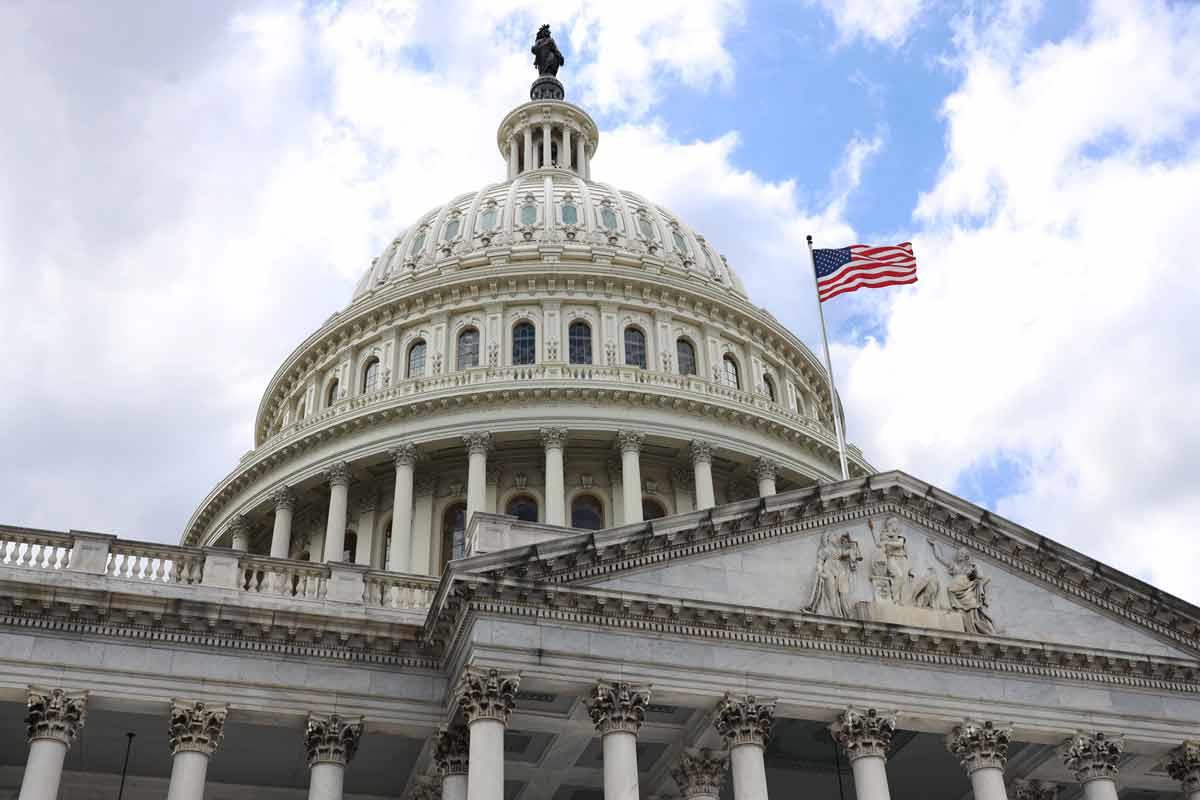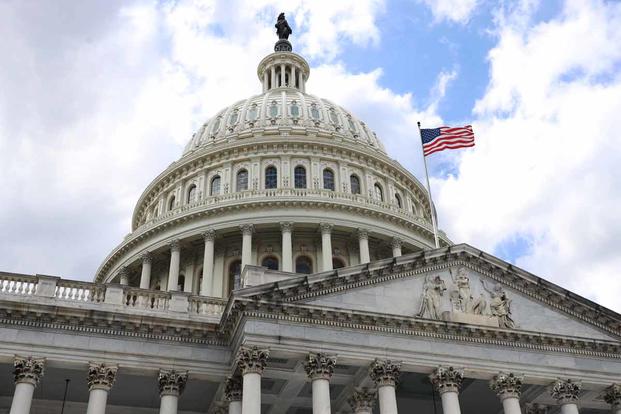

The Pentagon would have the ability to give low-paid service members inflation bonuses as high as economic conditions warrant — but no less than 2.4% — under the version of the annual defense policy bill approved by the House on Thursday.
The House overwhelmingly passed the National Defense Authorization Act, or NDAA, in a bipartisan 329-101 vote. The sweeping, $840 billion bill touches on everything from what weapons systems the military can buy to the war in Ukraine to extremism in the ranks.
The NDAA that was advanced out of the House Armed Services Committee last month included 2.4% bonuses for service members and Defense Department civilians making less than $45,000 in 2023 to help cope with inflation, which the latest Consumer Price Index update released this week put at 9.1%. The bonuses would be on top of 4.6% pay raises next year.
Read Next: Woody Williams, Last WWII Medal of Honor Recipient, Lies in Honor at Capitol Rotunda
Under an amendment that was approved by voice vote during the House debate on the bill this week, defense officials would be allowed to set the bonus higher than 2.4% “based on prevailing economic conditions that adversely affect members,” according to the text of the amendment. The bonus could “in no case” be less than 2.4%.
An earlier version of the amendment would have set the inflation bonuses at 6.6% in exchange for missile funding cuts, but it was rewritten before it came to the House floor.
The White House this week expressed “strong” opposition to inflation bonuses for Defense Department civilians, but has not commented on the bonuses for service members.
Highly controversial issues were largely sidestepped during the House debate on the NDAA.
A Democratic amendment to repeal restrictions on abortions provided or paid for by the Defense Department was not considered, nor were GOP amendments to increase restrictions on abortion access.
Instead, the House considered noncontroversial amendments related to sexual health more generally, including one approved by voice vote that would direct the Defense Health Agency to launch a telehealth pilot program aimed at reducing unintended pregnancies.
The House also approved along party lines a pair of amendments aimed at addressing extremism in the ranks, something Democrats and the Biden administration have been focused on in the wake of the Jan. 6, 2021, U.S. Capitol attack for which a handful of service members and veterans have been arrested. One amendment would require the Pentagon, Department of Homeland Security and FBI to publish a report on white supremacist and neo-Nazi activity in the military and law enforcement, while the other calls on the Defense Department to implement the recommendations of its Countering Extremist Activity Working Group.
Another amendment borne of Jan. 6, as well as the racial justice protests in summer 2020, would give the mayor of Washington, D.C., control of the district’s National Guard. Unlike state National Guards that are commanded by governors, the D.C. National Guard is commanded by the president, who has delegated that authority to the Army secretary. The amendment was approved in a largely party-line vote. The same measure was in last year’s initial House version of the NDAA, but was taken out of the version of the bill signed into law.
Lawmakers also tacked on several amendments related to the war in Ukraine. Among them, the House approved in a voice vote $100 million to train Ukrainian pilots on U.S. aircraft. An earlier version of the amendment specifically mentioned the A-10 Thunderbolt, F-15 Eagle and F-16 Fighting Falcon, but the version that was approved more generally calls for the pilots to be trained on “United States fixed-wing aircraft and other air platforms as appropriate for air-to-air and air-to-ground combat.”
Opposition to the NDAA in the House came from 39 progressive Democrats who balked at the $37 billion more in defense spending contained in the bill than the Biden administration requested. An amendment to remove that $37 billion from the bill failed 151-277, though most Democrats, including House Armed Services Committee Chairman Adam Smith, D-Wash., supported the move.
The bill was also opposed by 69 Republicans who fumed that amendments to roll back the Pentagon’s COVID-19 vaccine mandate and diversity efforts, as well as on issues unrelated to defense such as border security, weren’t considered during floor debate. Similar GOP amendments had already been voted on and rejected by the Armed Services Committee.
The House’s approval of its NDAA also advances proposals that were already in the bill — including measures to address suicides in Alaska and on ships undergoing major construction; further reform the military justice system by removing sexual harassment prosecutions from the chain of command; and create a Space National Guard.
The bill must still be reconciled with the Senate’s version of the NDAA before becoming law. The Senate Armed Services Committee advanced a version of the bill last month, and the full Senate is expected to take it up in September.
— Rebecca Kheel can be reached at [email protected]. Follow her on Twitter @reporterkheel.
Related: Pilot Program to Offer Troops Personal Gun Safes in Bid to Curb Suicides Gets Approval from House
© Copyright 2022 Military.com. All rights reserved. This material may not be published, broadcast, rewritten or redistributed.
